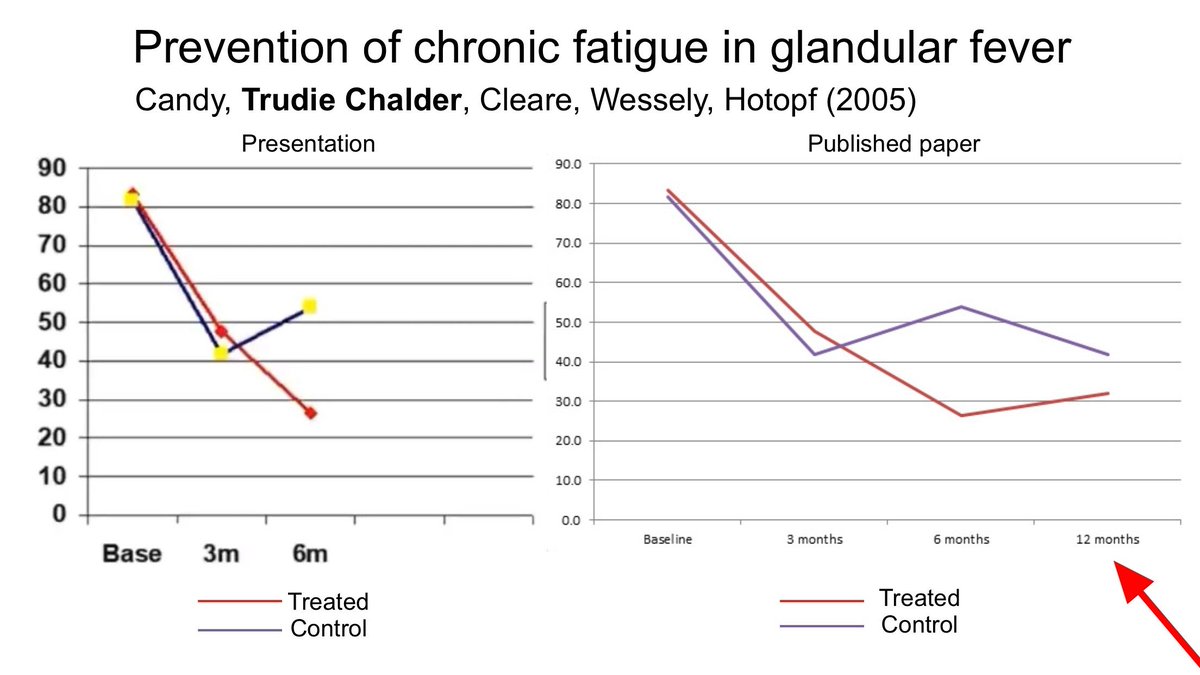
🧵Diagnostic Criteria and NICE downgrading evidence explainer.
NICE have received criticism about the diagnostic criteria they chose and that studies have been inappropriately downgraded. This will be discussed at tomorrow's roundtable.
NICE have received criticism about the diagnostic criteria they chose and that studies have been inappropriately downgraded. This will be discussed at tomorrow's roundtable.

The hallmark symptom of ME/CFS is Post Exertional Malaise (PEM), even minimal exertion can cause a flare in symptoms and a reduction in physical capability (a crash) that can last for days, weeks or even months.
There are several diagnostic criteria for ME/CFS. PEM is widely acknowledged in specialist practice as being a characteristic feature. However, not all diagnostic criteria require PEM as mandatory which leaves them open to include people with other fatigue-related conditions.
The criteria that NICE used is largely based on the IOM criteria and requires PEM. The US criteria was created in 2015 after an extensive review of the ME/CFS literature. 15 experts spent a year reviewing over 10,000 peer reviewed studies to produce a report which cost $1M.
A lot of evidence for Graded Exercise used old diagnostic criteria (eg Oxford criteria 1991) where PEM was not required. It's not certain that all the patients in these studies had ME/CFS making it difficult to be sure the treatments are safe and effective for people with ME/CFS
NICE used GRADE (Grading of Recommendations Assessment, Development and Evaluation) an internationally recognised approach to assess the quality of evidence. NICE scored evidence without PEM as 'indirect' and downgraded it acknowledging the uncertainty about diagnosis.
After stakeholder feedback NICE revisited the evidence looking specifically at PEM reported and the application of GRADE and indirectness.
"This did not result in any change to the recommendations." - Government Briefing 17 Aug
"This did not result in any change to the recommendations." - Government Briefing 17 Aug

The supposedly 'definitive' £5M PACE trial, the largest study of behavioural treatments in ME/CFS, is a clear example of this issue.
PACE used the 1991 Oxford criteria which did not require PEM, some participants probably had other fatigue related conditions & didn't have ME/CFS
PACE used the 1991 Oxford criteria which did not require PEM, some participants probably had other fatigue related conditions & didn't have ME/CFS
The Agency for Healthcare Research and Quality (AHRQ) and The National Institute of Health (NIH) recommended that the criteria used in the PACE trial should be retired.
The NIH stated that the criteria could "impair progress" and "cause harm"

The NIH stated that the criteria could "impair progress" and "cause harm"


The Agency for Healthcare Research also assessed the impact of studies using
the Oxford criteria on their recommendations.
When studies using the PACE criteria were excluded "there would be insufficient evidence of the effectiveness of [Graded Exercise] GET on any outcome"
the Oxford criteria on their recommendations.
When studies using the PACE criteria were excluded "there would be insufficient evidence of the effectiveness of [Graded Exercise] GET on any outcome"

References:
Government briefing sent from NICE to the Department of Health and Social Care on 17 August
Government briefing sent from NICE to the Department of Health and Social Care on 17 August
https://twitter.com/ABrokenBattery/status/1449704439716196353?t=SNASEyJoND4AVRONjAhwdg&s=19
AHRQ Impact of Oxford Criteria
effectivehealthcare.ahrq.gov/sites/default/…
NIH comments on Oxford Criteria
prevention.nih.gov/sites/default/…
effectivehealthcare.ahrq.gov/sites/default/…
NIH comments on Oxford Criteria
prevention.nih.gov/sites/default/…
Great point from @_Lucibee
https://twitter.com/_Lucibee/status/1450041222886723594?t=4Q5sh99U0wUhwqPJM88RKQ&s=19
• • •
Missing some Tweet in this thread? You can try to
force a refresh








